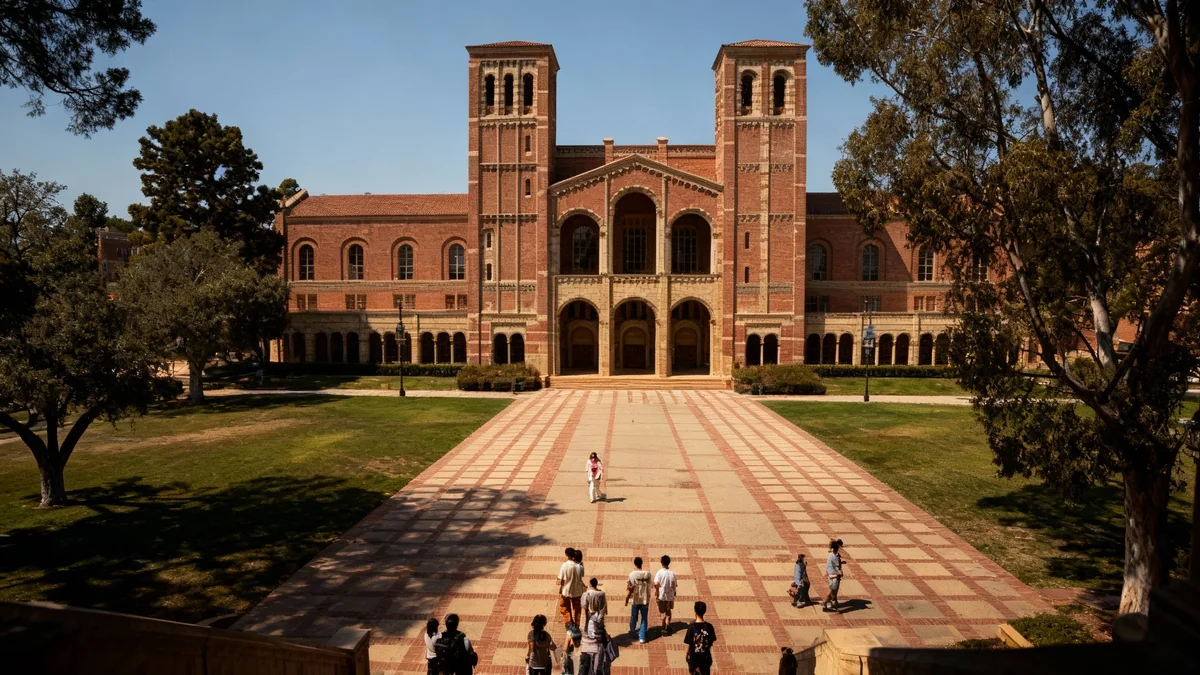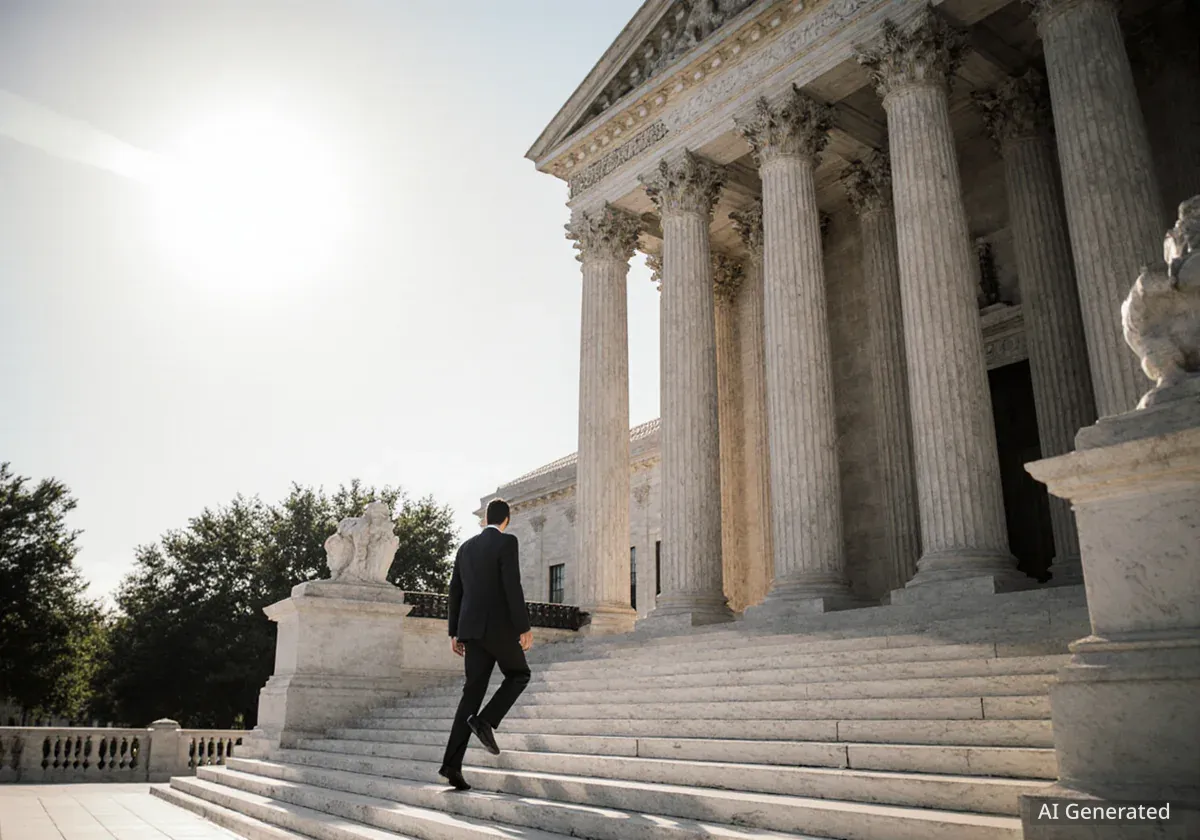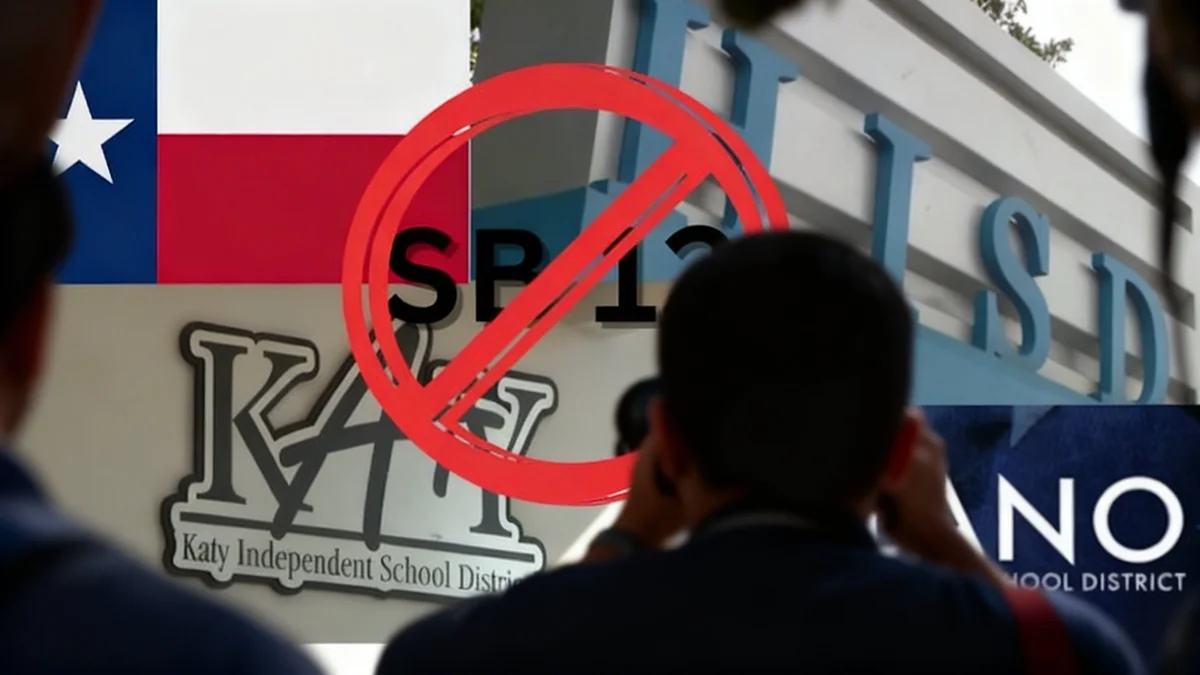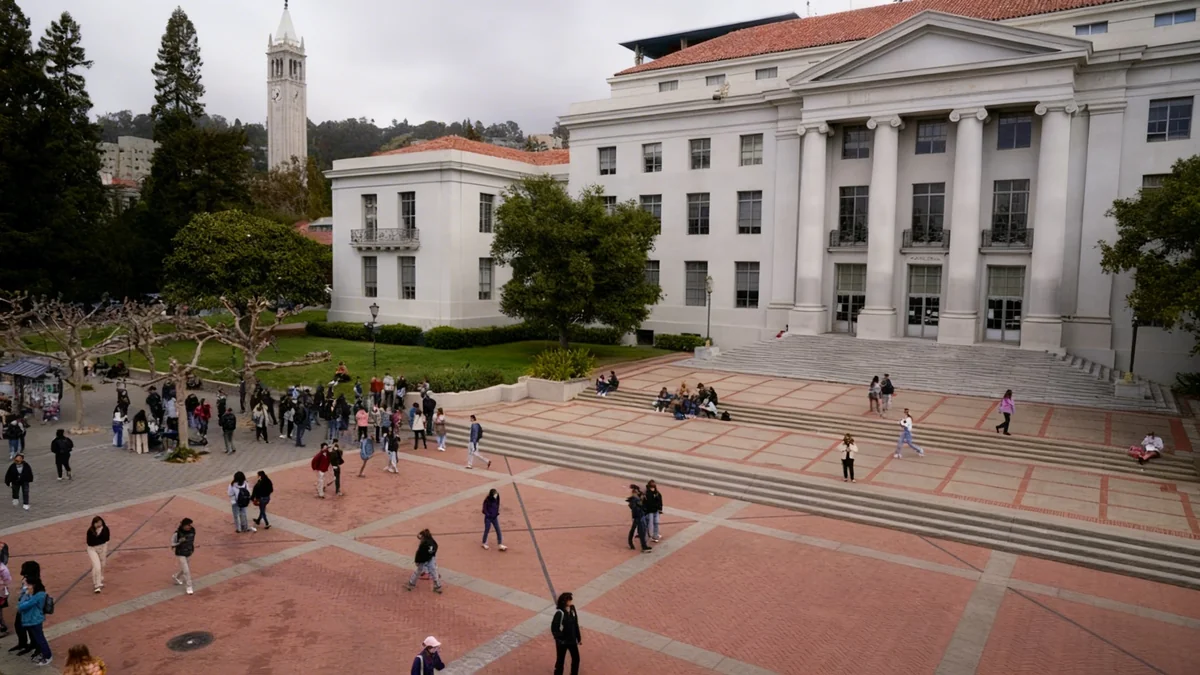The United States Justice Department has filed a lawsuit against the state of California, challenging a long-standing policy that allows undocumented students to pay in-state tuition rates at public universities. The legal action, announced Thursday, names the state, its top officials, and its two major public university systems as defendants.
The lawsuit contends that California's policy violates federal law by providing benefits to non-citizens that are not available to out-of-state U.S. citizens. This marks the third legal challenge initiated by the Trump administration against California in a single week, escalating tensions between the federal government and the state.
Key Takeaways
- The U.S. Justice Department is suing California, alleging its in-state tuition policy for undocumented students is illegal.
- The lawsuit claims the policy unlawfully discriminates against U.S. citizens from other states.
- Defendants include the state of California, the University of California (UC) system, and the California State University (CSU) system.
- California law allows students with three years of attendance at state high schools or community colleges to qualify for lower tuition rates.
- The University of California has defended its policy, stating it believes it is consistent with current legal standards.
Federal Government Alleges Discrimination
The complaint, filed in the U.S. District Court for the Eastern District of California, argues that federal law explicitly prohibits states from granting in-state tuition benefits to undocumented individuals unless the same benefits are offered to all U.S. citizens.
The Justice Department seeks a court order to declare the California policy illegal and to permanently stop its enforcement. The lawsuit also targets state-based scholarships and subsidized loans made available to these students through state legislation.
"California is illegally discriminating against American students and families by offering exclusive tuition benefits for non-citizens," stated U.S. Attorney General Pamela Bondi. "This marks our third lawsuit against California in one week – we will continue bringing litigation against California until the state ceases its flagrant disregard for federal law."
Executive Orders Cited in Lawsuit
The legal action references two executive orders signed earlier this year. A February order directed federal agencies to prevent undocumented individuals from receiving public benefits, while an April order instructed officials to stop enforcing laws that favor non-citizens over U.S. citizens.
California's Long-Standing Education Policy
California's current policy allows certain students to qualify for reduced in-state tuition, regardless of their legal status. To be eligible, a student must have attended a combination of California high schools, adult schools, or community colleges for at least three full-time years.
Furthermore, two state bills passed in 2011, collectively known as the California Dream Act, permit undocumented students to apply for and receive state-funded financial aid. It is important to note that these students remain ineligible for federal financial aid programs.
Supporters of the policy argue it does not violate federal statutes because the benefits are extended to any student, including U.S. citizens, who meets the same residency and high school graduation requirements. They emphasize that many of the affected students were brought to the United States as children and are integral members of their communities.
Impact on University Systems
- The California State University (CSU) system is the largest in the nation, with over 460,000 students. More than 25% of its undergraduates are first-generation college students.
- The University of California (UC) system serves approximately 300,000 students across its campuses.
A National Trend and University Response
The legal challenge in California is part of a broader national push. The Trump administration has pursued similar lawsuits against policies in states like Illinois, Oklahoma, and Texas. This pressure has led some states to alter their laws; Texas recently ended a decades-old policy, and Florida rescinded a similar law last year.
Despite the federal pressure, about half of the states in the country currently have laws similar to California's.
UC System Defends Its Position
The University of California issued a statement defending its approach to admissions and tuition, which has been in place for decades.
"While we will, of course, comply with the law as determined by the courts, we believe our policies and practices are consistent with current legal standards," the university stated.
This lawsuit adds to a series of challenges facing the UC system. It is currently navigating federal grant suspensions and a demand from the White House for a $1 billion fine related to separate allegations. Additionally, a recent state supreme court decision has forced the university to reconsider its policy that bars students without legal status from holding campus jobs, a ruling that system officials warned could complicate federal negotiations.





